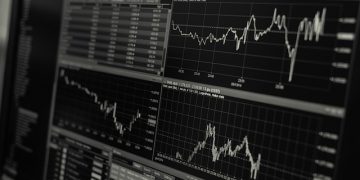| Sarasota Herald-Tribune
If you had invested $10,000 in Berkshire Hathaway in 1962, today it would be worth $298 million. It would have taken the wisdom of Job to foretell Buffett’s success, especially given the equity markets’ volatility over the years.
Since the election last November, the S&P 500 Index has had a series of repeated pullbacks, all capping at 4%. It occurred six times last year and once in January.
That last rout wrenched 3.7% from the index. So, are these small pullbacks over? There is no way of telling. Regular readers realize my disposition toward trying to project market behavior.
However, from a quantitative standpoint, there has been an increase in the number of companies exceeding earnings estimates this reporting quarter, with the technology and communications sectors doing especially well.
Of the 285 companies in Standard & Poor’s 500 index that have announced fourth quarter results, as of this writing, 83% exceeded earnings estimates, vs. 73% for the whole period a year ago, according to Bloomberg. About 15% have published poorer-than-expected earnings as compared with 19% a year ago.
On the revenue side, 68% exceeded forecasts, while 14% missed. A year ago, the numbers were 38% and 22% respectively.
Yet, a major change occurred in 2020. The pandemic and the sheer boredom of lockdown, excitement about new technologies, free stock trading, and more, began to entice many, particularly the younger generation.
It is hard to determine exactly what triggers market exuberance, but once started, it can create what Nobel laureate Robert Shiller labels, “a feedback loop.”
When Wall Street does better than expected, people begin to get excited. Suddenly, the financial markets become a key discussion topic, and with it increased investment experimentation. (The 1960s and 1990s bull markets also saw a variety of investment crazes.)
The ensuing demand begins to send share prices higher, investors become increasingly confident of their investment skills. Suddenly, volume and prices begin to increase exponentially.
Shiller believes the media plays a significant role in the exuberance. It is not just the egging on by one or more individuals, but rather journalists who cannot help but cover companies such as GameStop. Talking about 1,745% gains is irresistible. Once your attention is captured, you are in the feedback loop.
The market strategists at JPMorgan Chase wrote recently that “households’ equity allocation have risen to record highs, surpassing its previous high seen at the beginning of 2000 at the peak of the dotcom bubble.”
Growth at service-sector companies accelerated last month to an almost two-year high and homebuilders said demand remained robust.
The stock market is certainly not the economy. However, the wealth effect from rising asset values appears set to provide the largest uplift to consumer demand in 25 years.
Should we worry, then, that a major stock market correction could seriously dent the economic recovery? Probably not. A major market reversal, though possible, would be at odds with the economic fundamentals.
As impressive as the record-breaking streak in the equity markets has been, the associated wealth effect is rivaled by the wealth effect of home prices and subsequent home equity.
The increase in housing wealth is smaller in outright terms relative to stocks, but the transmission mechanism via wealth effects is stronger. Empirical studies suggest that the wealth effects from home-price appreciation are roughly three times larger than equity portfolios on a per-dollar basis.
If housing prices continue to rise at the current pace, it would offset an equity market decline in the vicinity of 23%.
Rising stock and home values are poised to lift consumer spending by an additional $297 billion in 2021, due to a near 50-50 split between stock and real estate wealth effects. This accounts for roughly 33% of the $900 billion increase in nominal household spending Bloomberg Economics projects for 2021.
You can write to Lauren Rudd at [email protected] or call him at 941-706-3449. For back columns go to RuddInternational.com.




